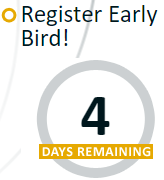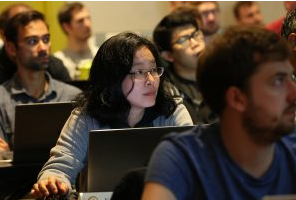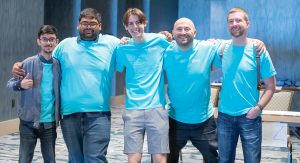Upcoming C++ User Group meetings in August
The monthly overview on upcoming C++ User Group Meetings. This time with offline, hybrid and online meetings!
Upcoming C++ User Group Meetings in August 2021
by Jens Weller
From the article:
The monthly overview of upcoming C++ User Group meetings. This time with offline, hybrid and online meetings.
In the first 3 weeks of August Meeting C++ online will host these events for you to get a first feeling on how a platform performs:
5th August: Teaching C++ with Victor Ciura
12th August: Ivan Čukić - Members through a looking glass!
19th August: Peter Sommerlad - Beyond rule of zero

 If you've been thinking about
If you've been thinking about  CppCon registration is open
CppCon registration is open Will you participate?
Will you participate? What are you waiting for?
What are you waiting for?